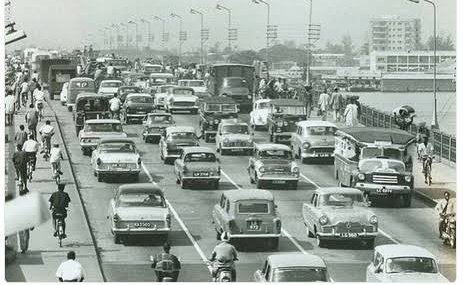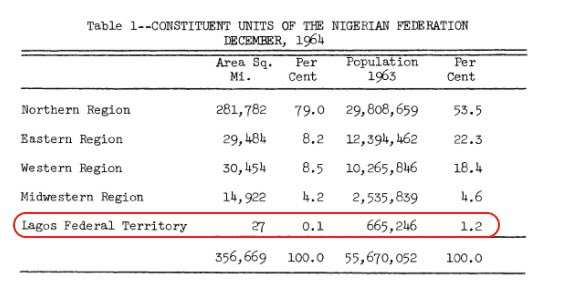“Edo or Benin own Lagos”
This is Totally false, infact Edo or Benin doesn’t own any parcel of land in Lagos. If you want to go into History, make sure your history isn’t base on emotion. Just to make it clear again, The History of Lagos (Eko) is Different from the History of Lagos State.

Lagos which was the first capital of Nigeria was only 27 square miles out of the 1381 square mile landmass of Lagos state today. The first capital of Nigeria, “Lagos” consist of Lagos Island, Marina, Ebute meta, Yaba, ikoyi, surulere, Apapa. Other part of Lagos State was carved out of the Old Western Region, these people share direct Ancestry with people currently living in Ogun State.

Places like: badagry, epe, Ikeja, Alimosho, Agege etc. For Example, Alimosho is a major Awori and Egbado settlement – They share direct Ancestry with people living in Ogun State. The History of Edo or Benin in Lagos “Not Lagos State” was a colonial mission which some people refer to as “Show of Power”
The phrase ‘belongs to or owned by’ is antithetical to the actual relationship between the indigenous people of Lagos and the Bini warriors sometime around the 18th Century.
From historical account, as summarised by the evidence before the court in Onisiwo v. Attorney General and Amodu Tijani v, the Secretary for Southern Nigeria, the original settlers of Lagos were the Awori, the descendants of Olofin. Olofin had settled around the Iddo area around the 16th century as the first settler.
He was later joined there by Ogunfunminire, a Yoruba prince from Ile-Ife, who had his base in Isheri about 20km from Iddo. From Iddo, they began to establish settlements all over the nearby island of Eko and the mainland of Ebute Metta.
Subsequently, Olofin parcelled out the island and part of the adjoining mainland among some 16 subordinate chiefs known as the ‘white-cap chiefs’ in recognition of their dominion over portions parcelled out to them.
The contact with the Bini, which is of great significance to the throne of the Oba of Lagos today, occurred in the 18th Century with the conquest of the Iddo – the first settlement of the Olofin, by the Bini warriors and the appointment of a regent known as the Eleko by the then Oba of Benin as the ruler of the island.
The first and successive Elekos became the Oba of Lagos, acknowledging the suzerainty and sovereignty of the Oba of Benin and paying tribute to him until sometime in 1850 when payment of tribute was stopped and the Oba of Lagos asserted his independence.
A more detailed historical account of the Awori’s interface with the Bini is contained in the work of an eminent Lagosian, Chief Musliu Anibaba, titled ‘The Lagosian of the 20th Century’.
In the book, the learned author refers to the regent of the Oba of Benin after the Iddo conquest as ‘Ashipa’ who died before he was installed as Oba. He claims that his son, Ado, was subsequently crowned formally as the Oba of Lagos with all the paraphernalia of that office; that Oba Ado established a meeting place on a pepper farm said to belong to Chief Aromire –a white-cap chief, which he donated to the Oba.
The meeting place, according to the author, later became the Oba’s palace in Lagos, now known as the Iga Idunganran. Idunganran, according to the author, was formed from Idun (farm) and Iganran (pepper). Oba Ado, according to him,was succeeded by two sons, Oba Gabaro and Oba Akinsemoyin, and a daughter, Erelu Kuti – all of Bini royalty. It is worthy of note that all the Obas who reigned in Lagos, including the late Oba Adeyinka Oyekan, were all descendants of Erelu Kuti of the Bini royalty.
Thus, it is therefore established from the historical accounts that I have just given, that while the royalty in Lagos has Edo (the Bini) origin, the white-cap chiefs of Lagos, who are landowners (or landlords of the royal houses of Lagos) are the descendants of Olofin of Awori origin. Since the late 18th Century when the Oba of Lagos stopped paying tribute to the Oba of Benin, the independence of Oba of Lagos from any external control or influence came to an end.
We all need to understand that paying tribute doesn’t equal owning a place, even fon people of Benin Republic paid tribute to Oyo at some point, Having Ancestry from another place doesn’t either, Awori People claimed they Originated from Ile ife yet People from Ile ife don’t claim ownership of Lagos.
History is not about emotion. There is an understanding between the royalty in Lagos and the landowners regarding existing arrangements and there is no argument as to the status.
Credence is given to the view that the Awori ‘own land’ in Lagos by the popular protests of the white-cap chiefs following the Treaty of Cession in 1861 under which Oba Dosunmu (the descendant of Ado through Erelu Kuti) purportedly ceded land in Lagos to the British Crown on the grounds that he, Dosunmu, could not have given away what did not belong to him or to the throne,which fact was endorsed by subsequent judicial interpretations of the effect of the Treaty of Cession.
These also played a huge role when the Oluwa of Lagos – Chief Amodu Tijani Took Britain to Court in 1921 for Stealing His Land and Won £22,500,39. Infact, When the freed slaves with yoruba Origin from Sierra Leon, Brazil and other part of the world were coming back into Yorubaland, The Yorubas who couldn’t trace their family tree in other Yoruba communities were given lands and resettled within Lagos “Not Lagos State”.
Fela’s Great Grandfather was one of those people who easily traced his root to Abeokuta and infact he had to walk from Sierra Leon to Abeokuta.
And Yes, It is important to know who the original owners of Lagos are, we must collectively say No to Ignorance, the idea and concept that Lagos is No man’s land is loud ignorance.
Source:
Yorubaness
The President of Eko Foundation, Prof. Imran Smith (SAN)
Bayo Akinloye – Punch Newspaper




